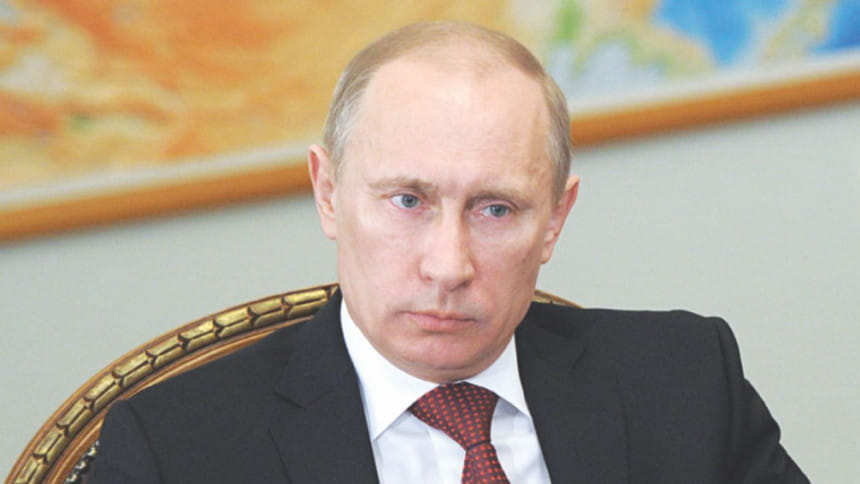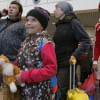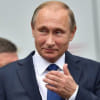Russia demands 'Putin corruption' proof

The Kremlin has called on the US Treasury to come up with proof after it told a BBC investigation it considered President Vladimir Putin to be corrupt.
Spokesman Dmitry Peskov told reporters the allegation was an "official accusation" and a "total fabrication".
Adam Szubin, who oversees US Treasury sanctions, told BBC Panorama that the US government had known Putin was corrupt for "many, many years".
It is thought to be the first time the US has made such a direct accusation.
Washington has already imposed sanctions on Putin's aides, but has stopped short of levelling corruption allegations at the president himself.
US restrictions were placed on a number of Kremlin insiders in 2014, after President Putin ordered the annexation of Crimea from Ukraine and conflict broke out in eastern Ukraine. The EU imposed similar measures against Russian companies and individuals, focusing on sectors of the Russian economy that were close to the elite.
The US government stated at the time that President Putin had secret investments in the energy sector.
Peskov told reporters in Moscow that the Panorama allegations would have looked like "another classic case of irresponsible journalism, if not for an official comment from a representative of the US finance ministry".
As such it was an official accusation. "It clearly shows who is directing this," said Peskov, who added that such an allegation required proof, to show that the statements were not unfounded slander.
In the programme, Szubin spoke of how "we've seen [Putin] enriching his friends, his close allies, and marginalising those who he doesn't view as friends using state assets", whether it concerned Russia's energy wealth or state contracts. "To me, that is a picture of corruption," he said.
'Simply rubbish'
US government officials have been reluctant to be interviewed about President Putin's wealth, and Szubin would not comment on a secret CIA report from 2007 that estimated it at around $40bn (£28bn).
But he said the Russian president had been amassing secret wealth. "He supposedly draws a state salary of something like $110,000 a year. That is not an accurate statement of the man's wealth, and he has long time training and practices in terms of how to mask his actual wealth."
President Putin declined to be interviewed for Panorama but the Kremlin denies such allegations.
In 2008, President Putin personally addressed claims that he was the richest man in Europe, saying: "It's simply rubbish. They just picked all of it out of someone's nose and smeared it across their little papers."
The Panorama programme came days after a UK public inquiry said Putin had "probably" approved the murder of ex-spy Alexander Litvinenko.
Peskov pointed out that the programme had coincided with "quasi-court proceedings" and said that the Kremlin was used to such "false-reporting", whether it was the result of incompetence or an orchestrated campaign.
Litvinenko, a former Russian Federal Security Service (FSB) agent and fierce critic of Mr Putin, was poisoned in London with radioactive polonium in 2006.
Sir Robert Owen's report found that Putin was likely to have signed off the attack in part due to personal "antagonism" between the president and Litvinenko. The Russian foreign ministry rejected the report as neither transparent nor unbiased.

 For all latest news, follow The Daily Star's Google News channel.
For all latest news, follow The Daily Star's Google News channel. 








Comments